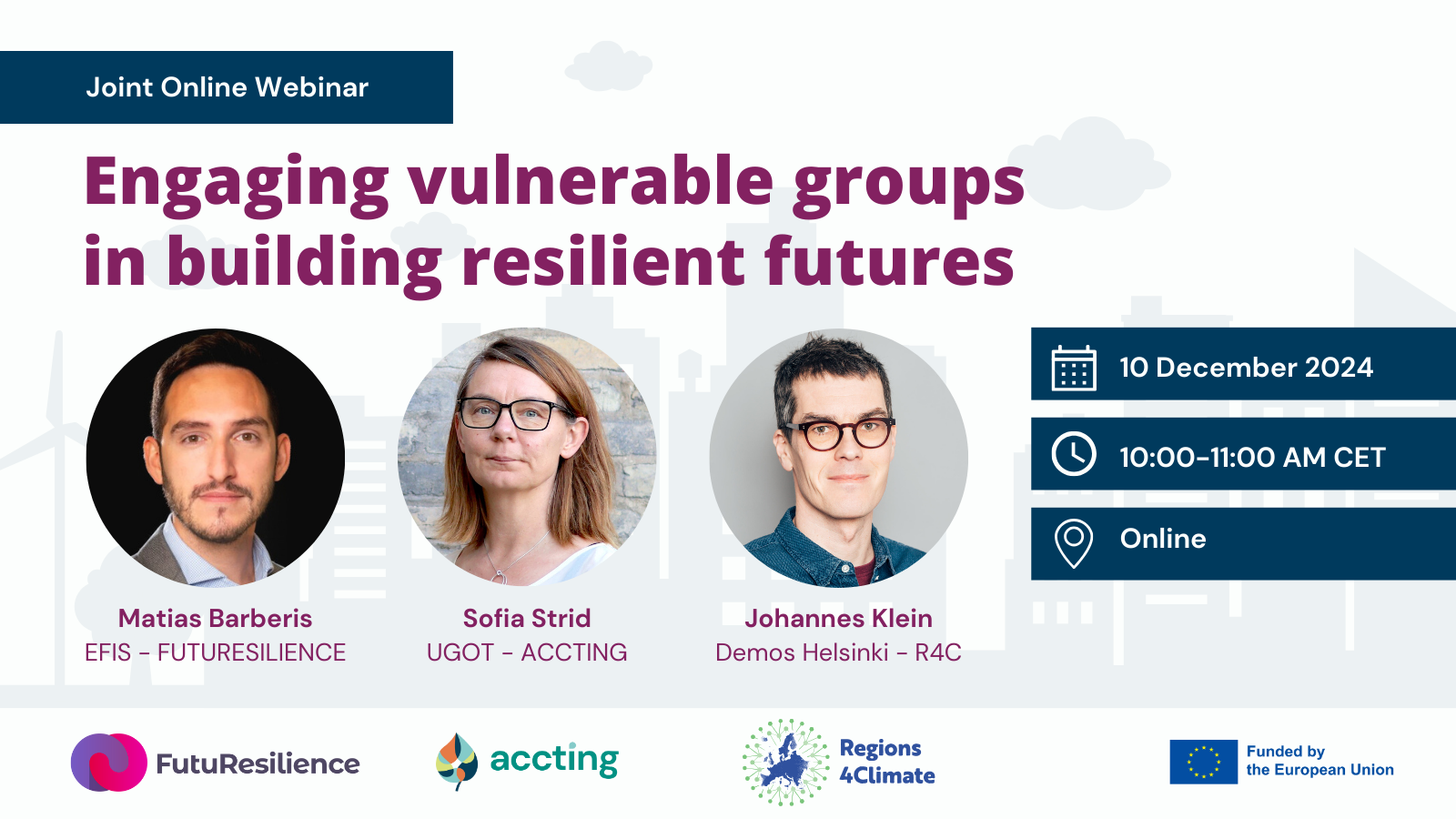Thematic Webinar #3: Engaging vulnerable groups in building resilient futures

This webinar is a joint initiative of FUTURESILIENCE, ACCTING & R4C projects. It aims to raise awareness on the importance of involving vulnerable populations in the framing and design of policies and activities to build resilience. It will provide practical insights on how to involve these stakeholders while considering intersectionality and gender+ equality, ultimately contributing to the development of resilient societies.
Vulnerable groups are significantly more impacted by the climate crisis and its effects, while being systematically left behind in climate policy-making at national and international level. Moreover, these groups are less prepared to face and adapt to climate change challenges and are less equipped for the green and digital transition, further reinforcing their vulnerable position. In order to build resilient societies, actions have to be focused on the most affected and the most vulnerable. Involving vulnerable groups in defining adaptations approaches and finding solutions strengthens their capacities and helps to build inclusive resilience.
FUTURERESILIENCE aims to strengthen European economic and social resilience through an enhanced ability to quickly respond to future crises. This is achieved by facilitating the fast and effective use of policy relevant research and innovation (R&I) findings through 10 pilot cases called 'FutuResilience Labs'.
ACCTING aims to understand the impact of Green Deal policies on vulnerable groups, prevent inequalities, and produce knowledge and innovations to advance behavioural change at individual and collective levels for an inclusive and equal European Green Deal.
R4C aims to collaboratively develop and demonstrate a socially just transition to climate resilience for European regions.

Preliminary Agenda:
- “Building resilience in fragmented cities”, Matias Barberis, EFIS Centre - FUTURESILIENCE
- “Intersectionality at the core of inclusive green policies”, Sofia Strid, University of Gothenburg - ACCTING
- “How to identify and engage vulnerable and marginalized groups”, Johannes Klein, Demos Helsinki – R4C
- Round table discussion & Q&A, Moderators: Antti Tahvanainen & Ioana Bara-Busila, European Science Foundation - ACCTING
Watch the recordings: